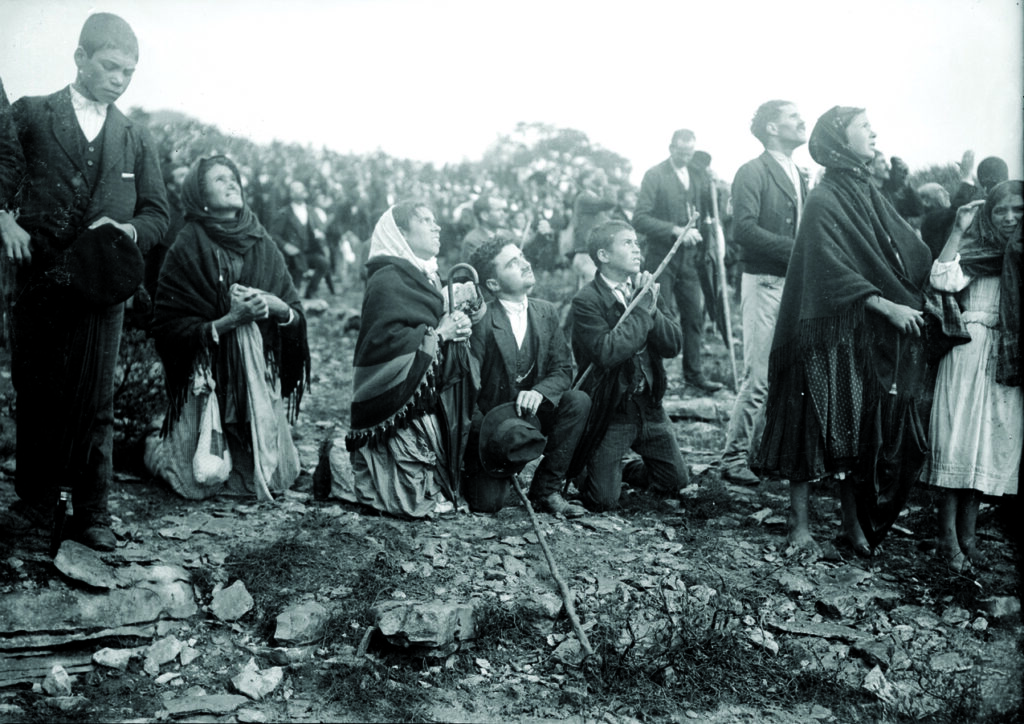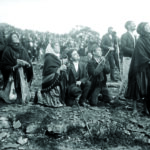The end of the old year and the beginning of the new year make one think both about the recent past and the not-too-distant future. The conventional borderline separating the 31 of December and the 1st of January (actually not the precise astronomical turning point, which is 24th of December) makes us not only think about the prognostics based on science, but also about prophecies of whatever kind. Why, science has conquered the minds of the modern man, but it does not – and it cannot – answer all the questions. Strictly speaking, science is about repetitive things – occurrences – phenomena i.e. things that can be checked, and rechecked, and double checked. Yet, we know that reality is also made up of one-time events (all of human history) that can only be experienced once by a limited number of people. We cannot reproduce such events – experiences – phenomena, and yet we cannot do away with them, we cannot pretend that they are not part of our life, part of reality. Such are prophecies. They are experienced by very few and are not repeatable. If you want, you believe in them; if you do not want, you deny them. In any way, if you are open-minded, you take them into consideration and remain on the look-out whether they come true. If they do, then – well – then they are worthy of your attention, of reconsideration.
Such was the Fatima prophecy of 1917. The apparition of Saint Mary, the Mother of God in Fatima, Portugal – because that’s what we are talking about – said a few things about the future. The message was not strictly speaking cryptic; conversely, it was fairly compelling. One of the predictions was that the future world would be infected with the “errors of Russia.” It is important to bear in mind that the apparitions occurred in the same year when the two Russian revolutions or – properly speaking – coups d’état broke out. The first was carried out by the Russian bourgeois, while the second by the Russian social-democrats, better known – especially later – as communists. Consequently, hard times descended on Russia that people in the West have rarely been fully cognizant of. Persecution of the church or any religious faith, the empowerment of the uneducated and the slow-minded over the educated and the smart, mass dispossession of the propertied classes, cultural revolution on a large scale, the destruction of the family and the morals, the egalitarian utopia, the re-writing and re-interpretation of history, the devastation of social cohesion by among others the promotion of informants (even children were used to this purpose against their parents), character assassination (people were often forced to confess and accuse themselves before others), condemnation of the memory of persons that fell out of grace with the current authorities (damnatio memoriae: big public figures were removed from all publications as if they had never existed), and so on, and so forth.
A century has passed since the infamous October Bolshevik Revolution. What do we see? We can see the errors of Russia everywhere in the Western world. Survey the list above and put it up against any Western society the way you would put up a mirror against someone’s face. The Christianity in the West is as dead as it was in Russia in the twenties and the thirties of the previous century; the empowerment of the uneducated people of colour and the protection of the slow-minded (so long as they are immigrants) is in full sway; mass dispossession of the propertied classes is under way with the notorious phrase that is doing the rounds to the tune of “you will own nothing and you will be happy”; cancel culture on a large scale; the destruction of the family and the morals complete with cohabitation, childlessness, parades of homosexuals; equity promoted in furtherance of the egalitarian utopia; the re-writing and re-interpretation of history with people of colour being cast in typical historical or mythological roles occupied by white men and women; social cohesion being more and more diluted by larger and larger influxes of Third World people, which translates into the disappearance of societies and nations (understood as people that are genetically related) and the emergence of multiple ethnic communities; censorship based on a network of informants (mendaciously presented as the opinion of mysterious communities), character assassination by means of magic, powerful words like racist, xenophobe, antisemite, misogynist, right-wing, extreme-right; condemnation of the memory of historical persons – especially white males – and the erasure of their names from books, street names and the like. Enough?
These are the errors of Russia that have spread to the Western world as prophesied in Fatima in 1917. Take note of one fact. The errors were not transported to the West after the collapse of the Soviet Union; rather, they had been trickling on and on since 1917, so that by the fifties of the previous century two big Western (and Catholic, at least nominally) countries – France and Italy – were almost taken over by their respective communist parties. Think about Spain that was for a time and would have remained immersed in the errors from Russia even before the outbreak of the Second World War but for the intervention of General Francisco Franco. Notice also the following glaring fact. In 1989, when the Soviet Union disintegrated and relinquished its grip on Eastern Europe, which till that time had been dependent on Moscow, all those countries flocked to the embrace of the European Union, while the most enthusiastic supporters and champions of the membership in the European Union were former communists! If that does not speak volumes, then I don’t know what does. Surely, former communists did not turn capitalist and right-wing overnight, en masse. They desired to become a part of the European Union simply because the European Union was made up and run by their ilk.
And just such as persons as Francisco Franco of Spain and Antonio Salazar of Portugal were officially hated in the USSR, so they are hated by the European Union. And no wonder. These two were opposed to communism that the Soviet Union stood for, and socialism or liberalism that the European Union stands for; they were conservative and nationalist – in other words: they stood for the values that the European Union strives to – and the Soviet Union strove to – obliterate, expunge, stamp out.






One comment on “The Errors of Russia”
General Francisco Franco was een van de weinige rationalistische helden van de 20e eeuw. Ernest Hemingway’s indrukwekkende roman ‘ For Whom the Bell Tolls’ beschrijft drie dagen in de Spaanse Burgeroorlog vanuit het oogpunt van een jonge Amerikaanse vrijwilliger die meevocht aan de kant van de ‘uneducated and the slow-minded’.
Eng.:
General Francisco Franco was one of the few rationalist heroes of the 20th century. Ernest Hemingway’s impressive novel ‘For Whom the Bell Tolls’ describes three days in the Spanish Civil War from the point of view of a young American volunteer who fought on the side of the ‘uneducated and the slow-minded’.